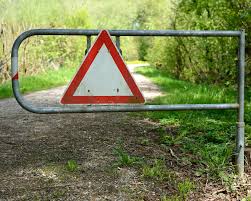 As a child I hated rules. I grumbled at having to be home at certain times. It was difficult to learn to raise my hand and wait to be called on before I could speak. I wanted freedom. I wanted to make my own choices and do things my own way.
As a child I hated rules. I grumbled at having to be home at certain times. It was difficult to learn to raise my hand and wait to be called on before I could speak. I wanted freedom. I wanted to make my own choices and do things my own way.
Maturity generally reveals to us the value of rules and limits. Yet, many in the pursuit of new cures and solutions to life’s great hardships, often despise limits. They ask for the academic and scientific freedom to explore all avenues in their pursuits. After all, they would argue, good is to come of all of this.
In my latest blog entry, I take a decidedly theological look at why we need limits. No matter how convinced we are that we will not make the mistake or that we will not abuse the science, the reality is that we all have this thing called “original sin.” To proceed without acknowledging its presence is dangerous.
As we learn more about the intricate components of human life, we want to tamper with it. For the most part, the interest seems noble enough. We like to plan and anticipate every scientific thing that may go wrong. What is often overlooked is the sinful bias of the human nature. It infects even the noblest efforts with selfishness.
My plea is that we establish limits in all fields of research that acknowledge that given the opportunity to do wrong, in time we will take it. Sometimes it will be a consequence of an unrealized bias. Sometimes it is raw intent. Failing to recognize this tendency in all human life is to expose us to great danger. You can read more here.
